OnePlus 6 review: the progeny of smartphone royalty has arrived
Can the successor to one of the most popular phones ever reclaim its throne?

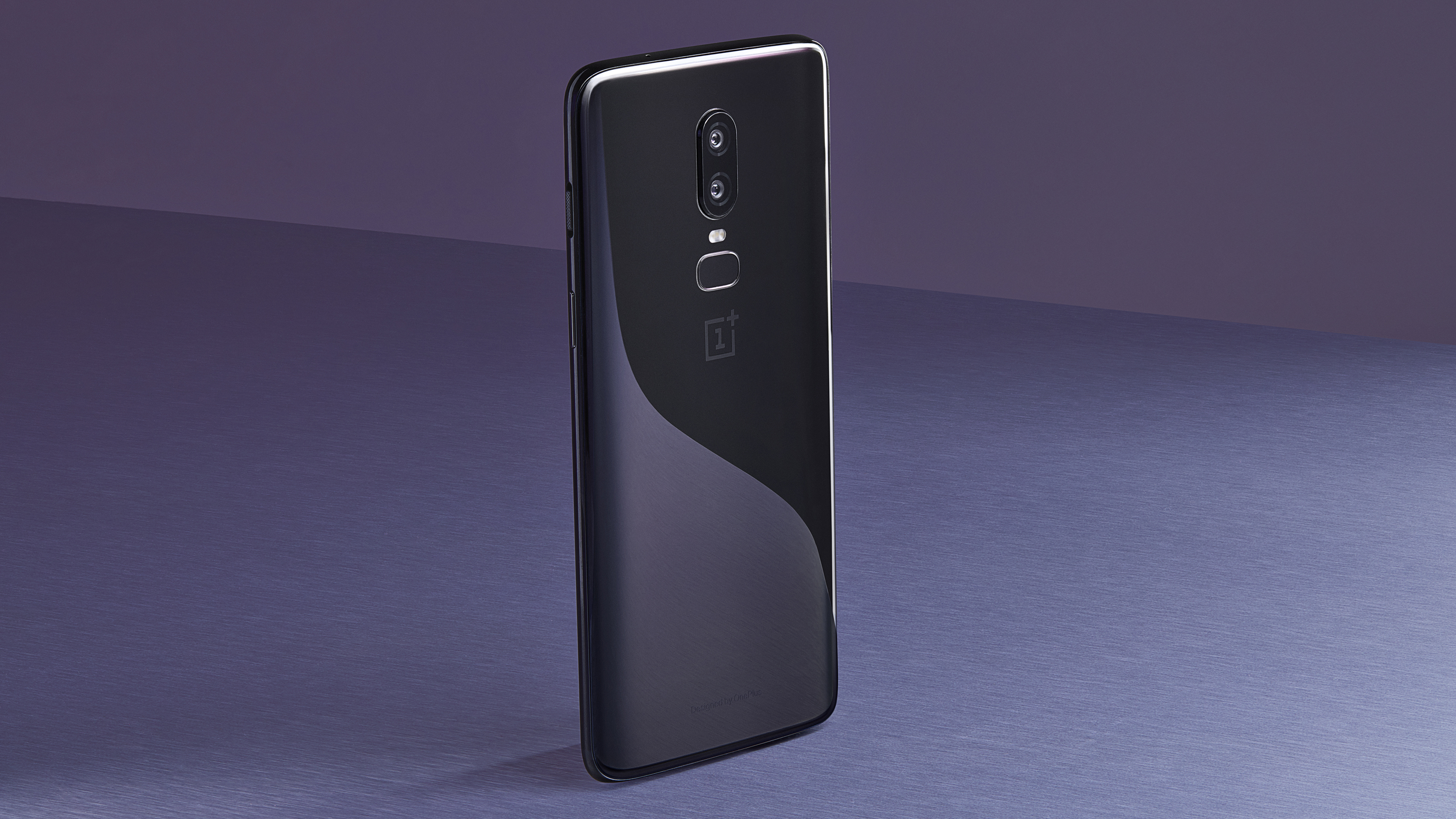
Oh my, the power this thing has locked away is absolutely atomic, with benchmark scores that absolutely smoke rival flagships. Be under no illusion, the OnePlus 6 is fast, very fast, and its good (if not market leading) screen, battery, and camera performance makes it one of the best high-end phones you can buy in 2018. Mike Tyson said it best when he stated that "speed kills" - in terms of internal hardware, the OnePlus 6 is a rival flagship killer.
-
+
Incredibly fast, with big benchmark scores
-
+
Packs a whopping 8GB of RAM
-
+
Large and vivid AMOLED, HDR screen
-
+
Beautiful all-glass design
-
+
Lightning fast face unlock
-
+
Silk White colourway is lush
-
-
Battery capacity is good but not ideal
-
-
Flat light camera system performance isn't great
-
-
Water resistant, but not IP67/68 certified
-
-
No wireless charging
Why you can trust T3

OnePlus 6 specs
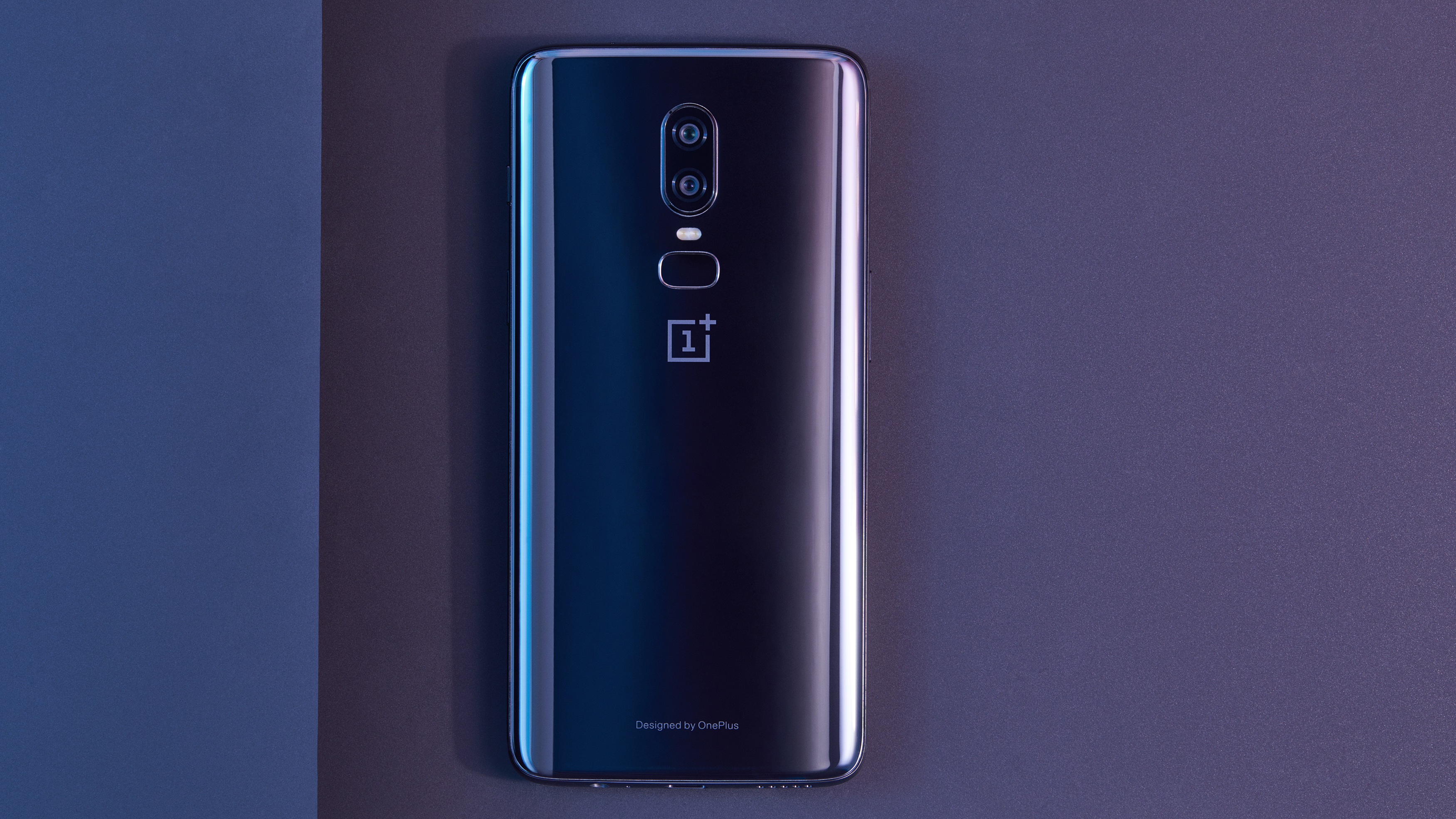
Dimensions: 155.7 x 75.4 x 7.75 mm
Weight: 177 g (6.2 ounces)
Screen: 6.28-inch, 19:9, AMOLED, 2,280 x 1,080
CPU: Qualcomm Snapdragon 845 (octa-core, 1nm, 2.8GHz)
GPU: Adreno 630
RAM: 8GB
Storage: 128GB
Rear cameras: 16MP (OIS, EIS, f/1.7) / 20MP (f/1.7)
Front camera: 16MP (EIS, f/2.0)
Battery: 3,300 mAh
OS: Android 8.1 Oreo
UI: OxygenOS
The OnePlus 5 was one hell of a smartphone, and the mid-cycle OnePlus 5T refresh simply helped cement it as one of the best models released over the past 5 years. Despite a top-of-mid-range price, the OnePlus 5 was arguably a game-changing transition phone for the indie Chinese maker, progressing it from flagship contender (neatly marketed at the time as a "flagship killer") to genuine flagship, and at a below flagship price point, too.
Fast forward to 2018 and the progeny of the OnePlus 5 is here in the form of the OnePlus 6 and, simply put, my impression of the phone is that it has actually completed its journey to the big leagues, transitioning from contender, to flagship and now into a genuine, hardware-proven (see benchmark score boxout), killer of other flagship phones.
The power this thing has locked away is absolutely atomic
As we will see, this phone it isn't perfect though, with other devices beating it in my mind in some certain areas. However, the blinding speed the OnePlus 6 delivers in partnership with its luxe design and slick UI goes a long way to making it one of the attractive, shut-up-and-take-my-money propositions of 2018.
For the full picture on the OnePlus 6 then read on.
OnePlus 6 review: price, availability, and colours
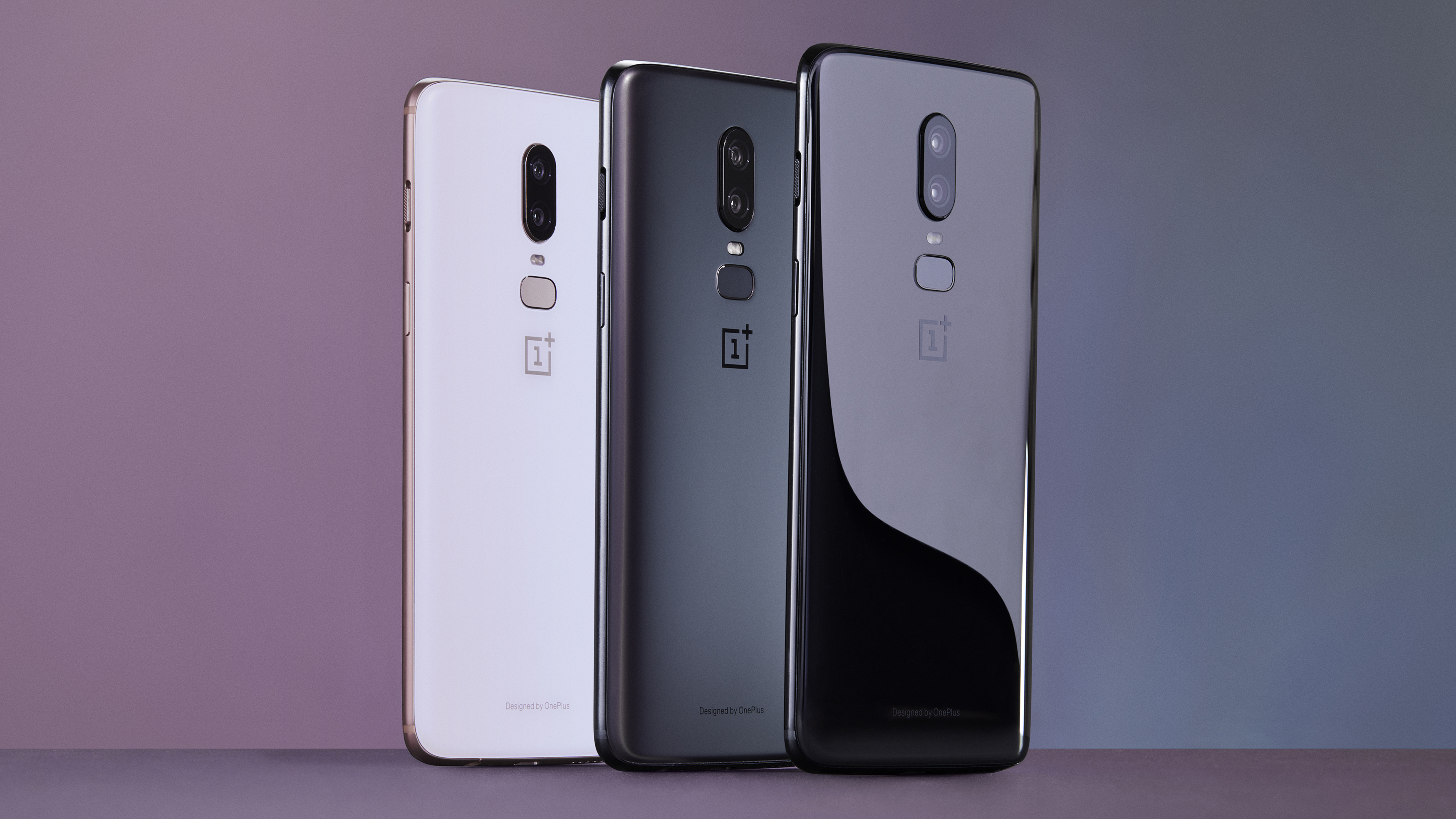
The OnePlus 6 is available in three colourways. The Silk White edition is absolutely lush.
The OnePlus 6 is available now. The limited edition Silk White model is available on June 5th, 2018. The OnePlus 6 can be bought from numerous retailers, including the official OnePlus Store.
The OnePlus 6 ranges in price depending on the model selected. The 6GB and 64GB model will cost £469 ($529). The 8GB and 128GB model costs £519 ($569). And the 8GB and 256 GB model costs £569 ($629).
There are multiple different hardware variants on sale, with combinations of 6GB/8GB of RAM partnering with 64GB/128GB/256GB of storage space available. The model tested here in this OnePlus 6 review is a 8GB RAM / 128GB of storage space model. It is important to note that attainable spec is also determined by selected colourway, with not all hardware configurations available on all colours.
Get all the latest news, reviews, deals and buying guides on gorgeous tech, home and active products from the T3 experts
The OnePlus 6 is available in three different colour schemes, including Mirror Black (the edition tested), Midnight Black, and Silk White.
OnePlus 6 review: design and build quality
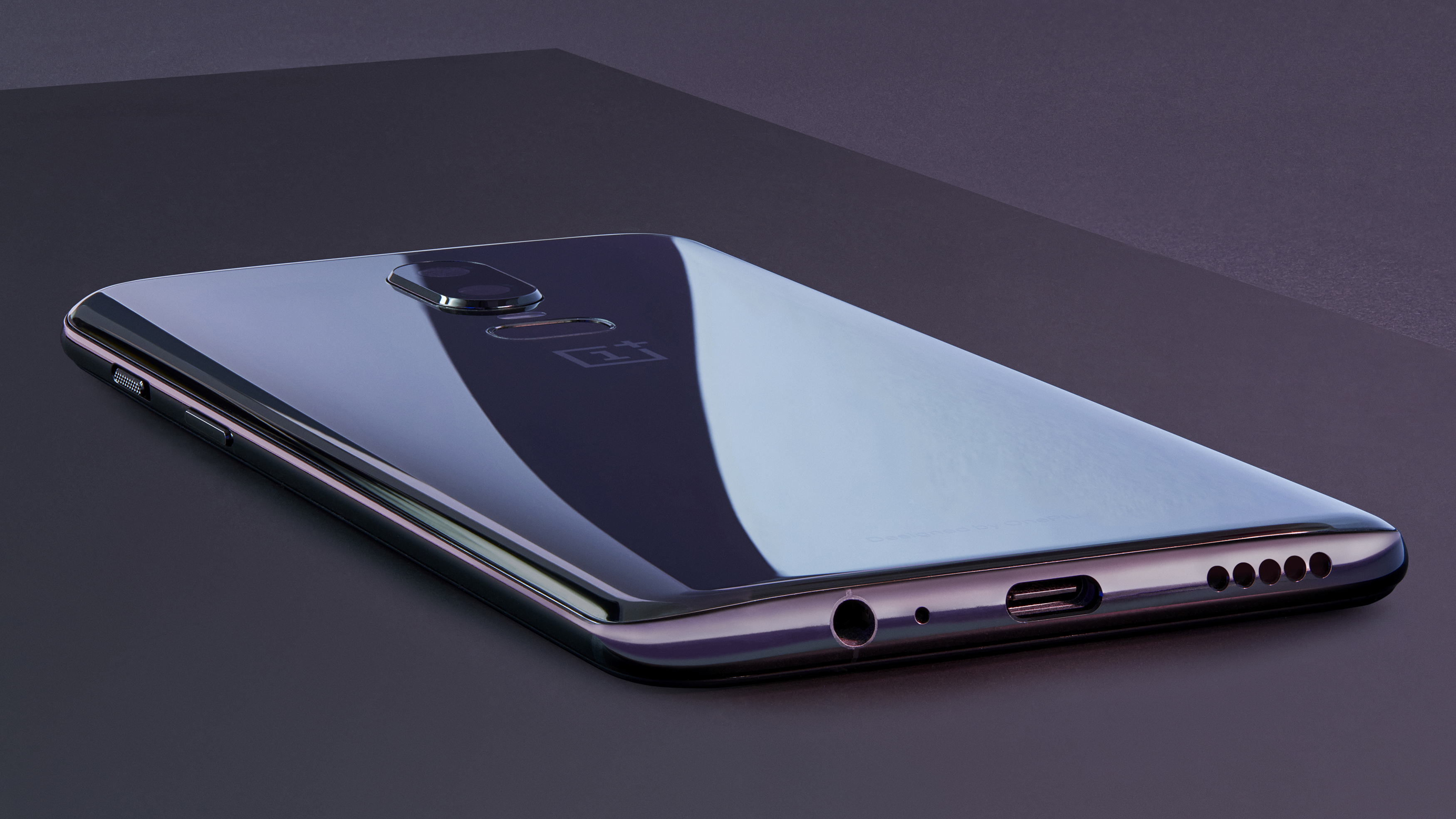
Corning Gorilla Glass 5 covers both the front and back of the OnePlus 6.
The big take away from the design of the OnePlus 6 is its all glass body. The glass used on both the front and back is the industry leading Gorilla Glass 5, which I know from past experience is super tough, and has been shaped on this handset so it wraps into the frame's horizon line (yes, the OnePlus hallmark remains) almost seamlessly.
The overall effect generates a very slim and attractive look and feel in the hand, despite it not measuring in as dramatically thinner than rival flagships. Picking the phone up feels like a premium experience, with glass and metal exuding an air of quality. As you would expect, though, from a phone with such a glossy finish, fingerprints get everywhere, and damn fast, too.
Gorilla Glass 5 wraps into the frame's horizon line almost seamlessly
Moving around the device, on the right hand side there is a three-position switch button with ridged top (this let's you quickly slide between volume on, vibrate, and silent operation without accessing the phone's UI), as well as power button.
On the left hand side you get a volume rocker and the phone's dual SIM card slot, and on the bottom edge you find the now standard USB Type-C connection as well as a 5mm audio jack port. I, for one, welcome the current push back against wireless only connections, so OnePlus gets a hat tip here for sure.
The phone's dual camera system is located in a central, vertically orientated array on the backplate, with the lenses extending out just a fraction (not flush). Beneath them you have a flash unit, and beneath the flash there is the device's oval-shaped fingerprint reader. I can confirm that the fingerprint reader is well-positioned and easy to access.
The only other things to note at this point is that the OnePlus 6 comes with a screen protector installed out of the box, as well as a solid if quite standard rubberised bumper case. Also, the phone is water resistant but does not carry a IP67/68 rating.
OnePlus 6 review: hardware, screen, and performance
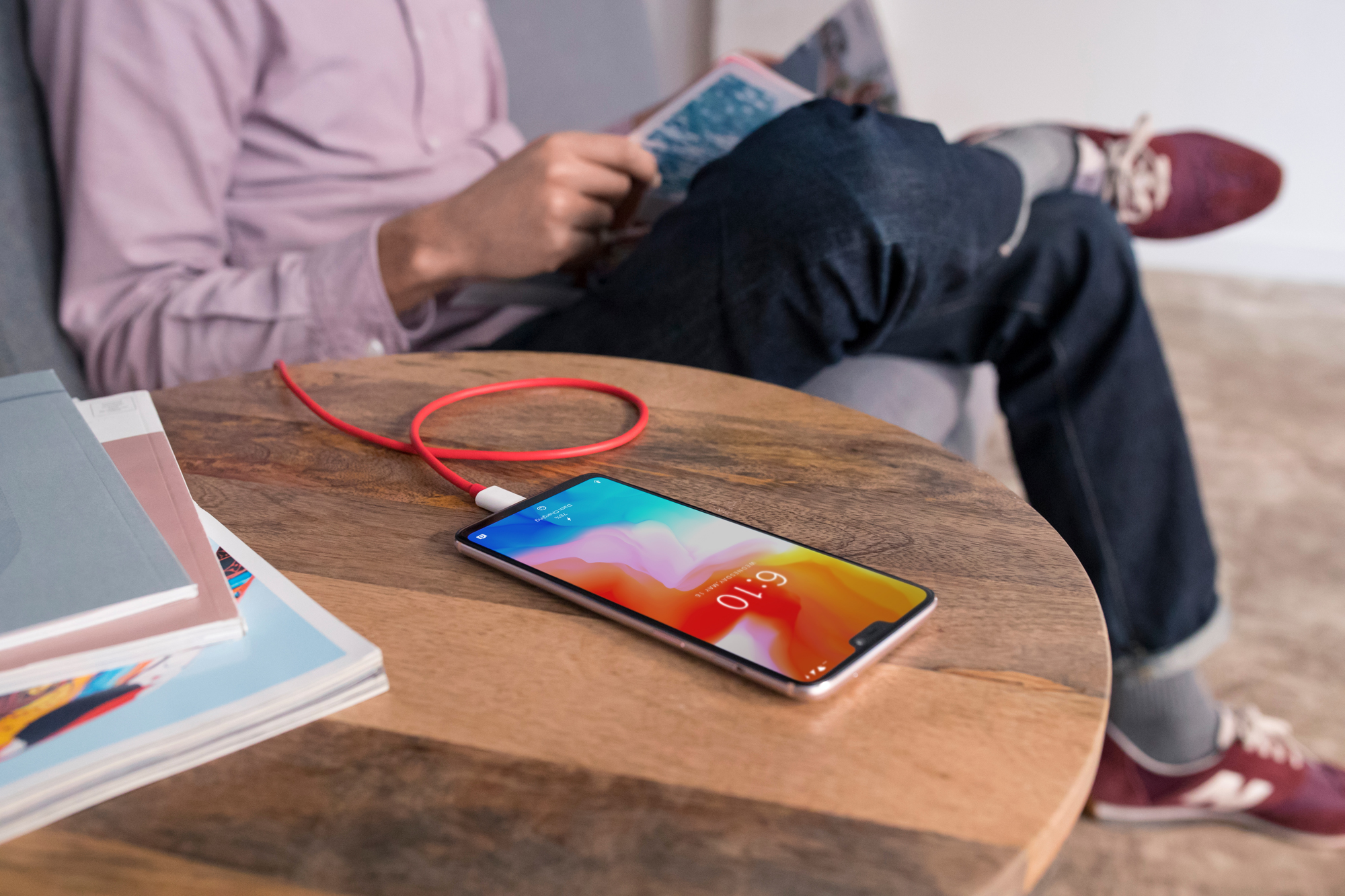
Thanks to a Snapdragon 845 CPU and 8GB of RAM the OnePlus 6 is fast, very fast.
The OnePlus 6 comes stacked in terms of internal hardware with a Snapdragon 845 CPU, Adreno 630 GPU, and a whopping 8GB of RAM. This hardware spec is top, top tier flagship and, as you can see in the nearby box, delivers some outrageous benchmark scores.
A single core score of 2,478 and multi-core score 9,046 is higher than those achieved on not just the Sony Xperia XZ2 flagship smartphone, but also the 5-starred phone to beat in 2018, the Samsung Galaxy S9, both of which typically post scores in the mid-to-high eight thousand range in GeekBench 4. And it absolutely smokes our stock benchmark comparison phone, the HTC U11+, which scores well below the OnePlus 6 with a single core score of 1,937 and multi core score of 6651.
GeekBench 4 benchmark

Single core: 2,478
Multi core: 9,046
Those scores are, without doubt, largely down to the octa-core power delivered by the phone's processor and, unlike 2018's other flagship phones to date, 8GB of RAM instead of 6GB or even 4GB. As a user that always likes to have the best specced model of any phone release, it felt very satisfying to have that extra RAM tucked under my belt, especially as it adds a big dollop of future-proofing to the device, too.
As frequent readers of T3 will know, I am a big fan of large phones and, if they come packing a quality screen as well, then that definitely appeals to my tastes. So the 6.28-inch, 19:9, HDR, AMOLED, 2,280 x 1,080 resolution screen on the OnePlus 6 is right up my street.
It felt very satisfying to have that extra RAM tucked under my belt
And, thanks to the on-trend notch sported on the OnePlus 6, something that helps deliver a most welcome 84 per cent screen-to-body ratio, you really get to enjoy it to the maximum while navigating the device. Yes, that doesn't carry over into the vast majority of apps, and yes notches are subjective too (you can turn on a good old black bar if you wish), but it really helps generate a premium, breathable aesthetic in my mind.
And as you would expect from a HDR AMOLED panel, colours are defined and really rather punchy when watching streamed content from Netflix and Amazon Prime, as well as when playing games downloaded from Google Play Store. Detail, too, was great thanks to that sharp 2,280 x 1,080 resolution.
I feel the screen's dynamism though fell short in my mind when compared to the Super AMOLED panel equipped on the Samsung Galaxy S9+, and its maximum brightness bettered too by the 1,000 nit display on the LG G7 ThinQ. I felt the adaptive brightness mode as well leaned too much toward the dim side of the scale, and I did find myself manually adjusting the screen's brightness, both indoors and outdoors, on a few occasions to get what I felt was a more suitable viewing experience.
OnePlus 6 review: camera, battery, and software
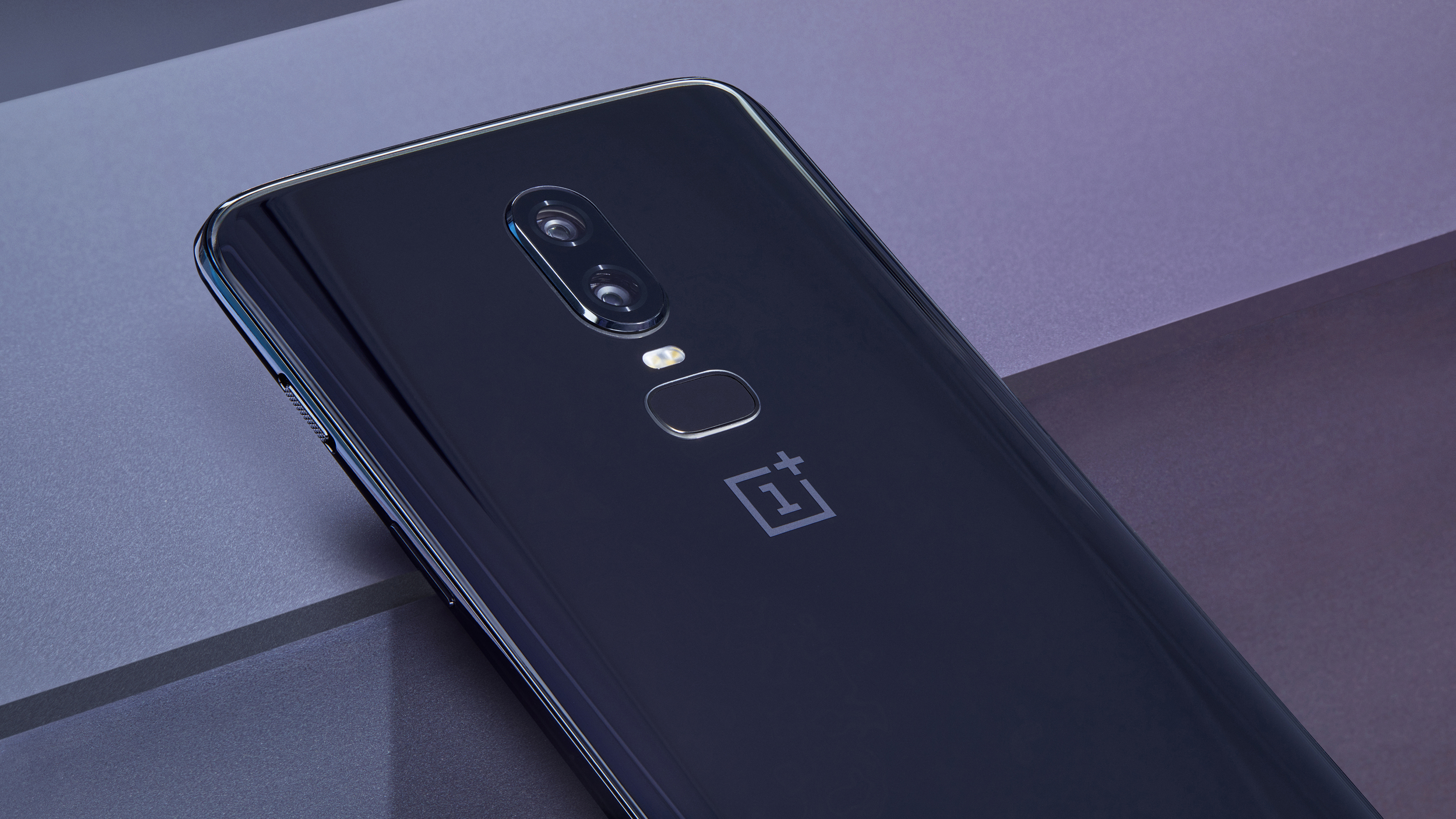
The OnePlus 6's dual camera system consists of a 16MP main unit and a 20MP support.
The OnePlus 6's camera setup consists of dual rear array (16MP OIS, EIS, f/1.7 | 20MP f/1.7), as well as a front 16MP EIS, f/2.0 unit. This camera system also delivers 4K video recording up to 60 frames per second, and - in a new feature for the line - a super slow motion mode that can capture at up to 480 frames per second.
The sensors on those cameras are Sony-brand (IMX 519, IMX 376K, and IMX 371) so I had high hopes for the phone's photo-shooting potential, and considering that the main 16MP camera's sensor is 19 per cent larger than that on located on the outgoing OnePlus 5T, and also now features optical image stabilisation (OIS), I fully expected to see some improvements in snapping power, and especially so in low-light environments.

OnePlus 6 camera image gallery

OnePlus 6 camera image gallery

OnePlus 6 camera image gallery

OnePlus 6 camera image gallery
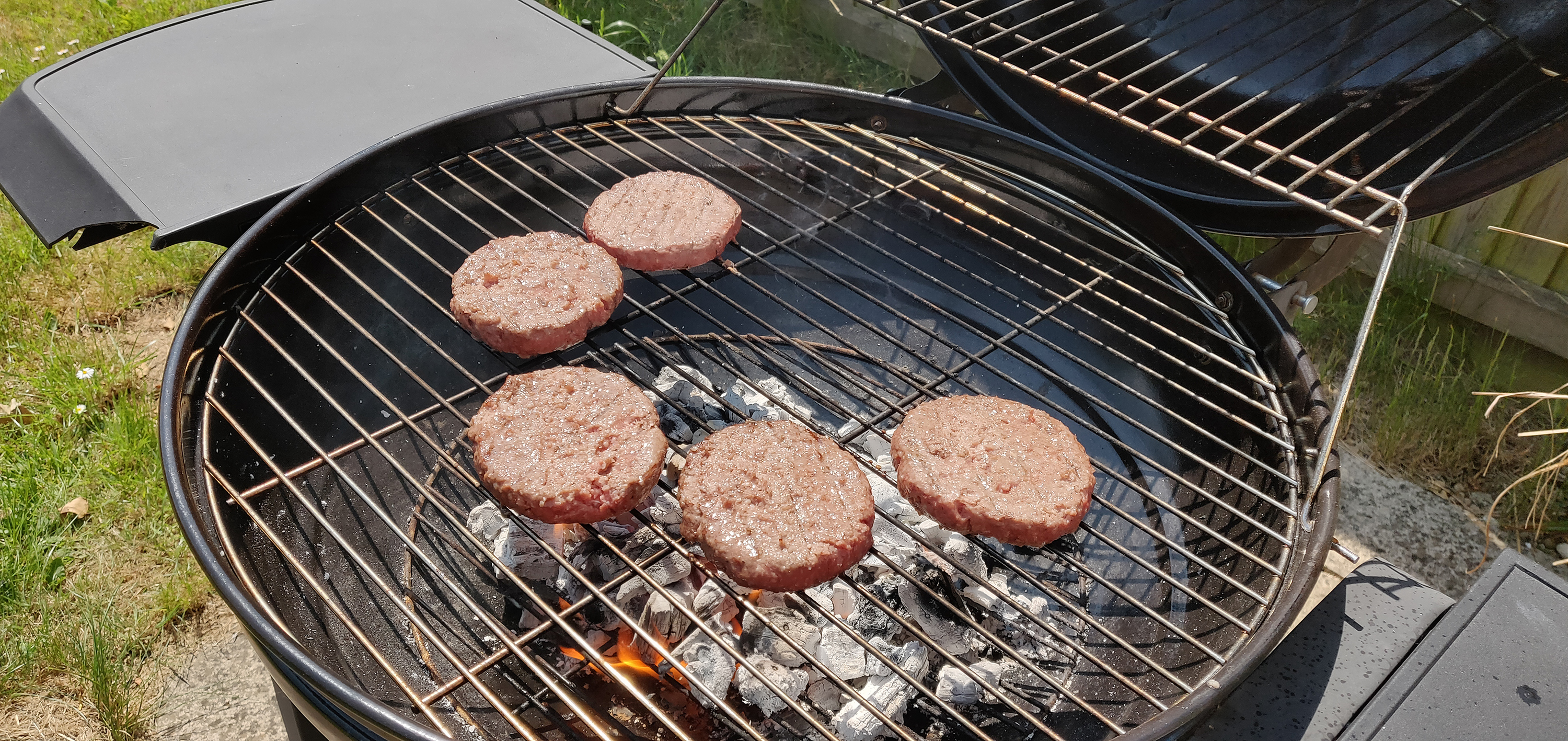
OnePlus 6 camera image gallery
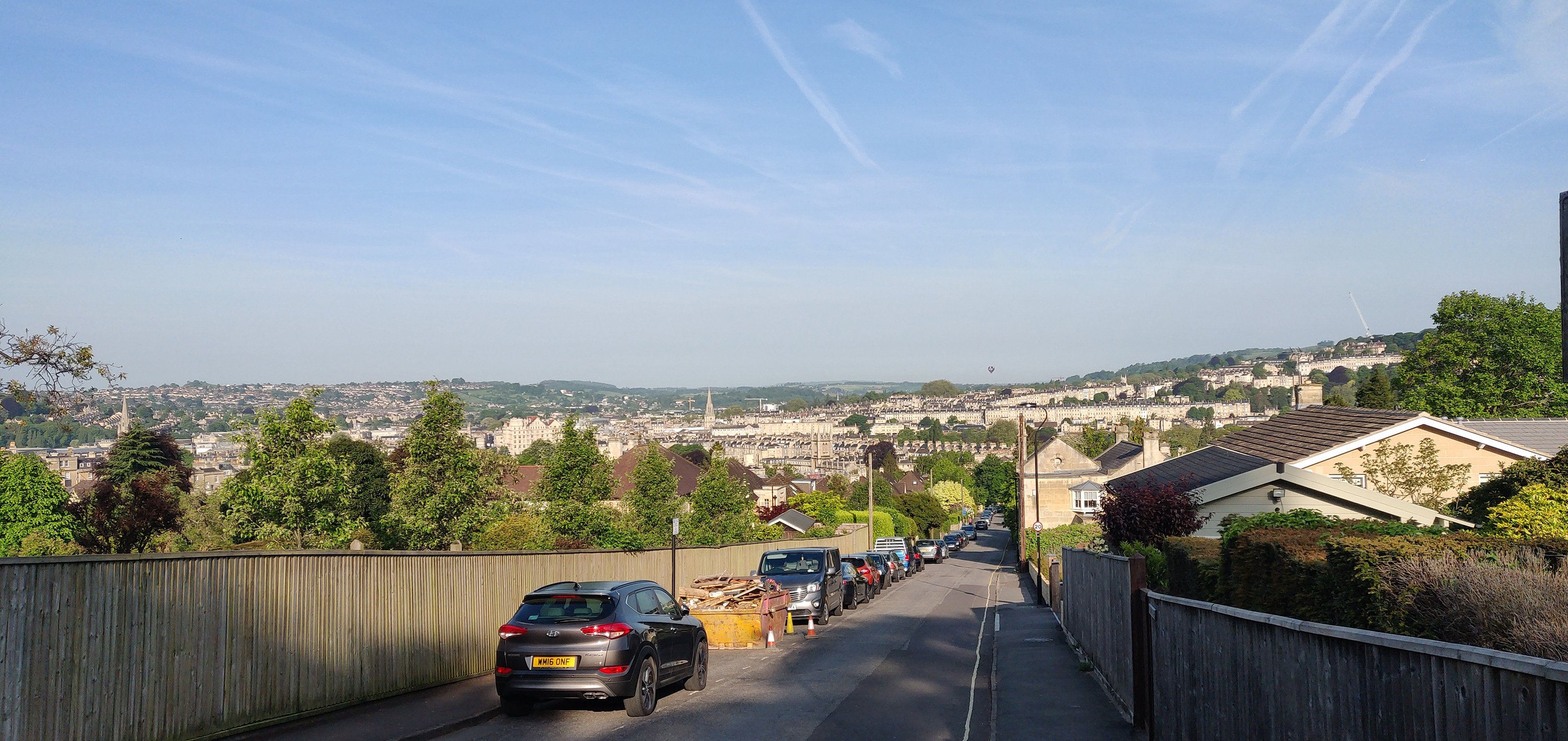
OnePlus 6 camera image gallery

OnePlus 6 camera image gallery

OnePlus 6 camera image gallery

OnePlus 6 camera image gallery

OnePlus 6 camera image gallery
OnePlus says that it has introduced a Smart Capture mode on the 6 that, depending on the shooting environment and time of day, will select which of the phone's camera features to use to optimise the image for clarity. The maker has also reportedly upgraded its High Dynamic Range algorithm, too, which has been designed to improve lighting in taken photographs.
My experience with the OnePlus 6's camera system was a mixed bag. As you can see from the above image gallery, colour capture in is a major strong point for the phone, with colours really deep, vibrant and popping out of taken images, both in close-up focus shots and wider panoramas.

Low-light performance is improved over the OnePlus 5T, but the 6's capabilities are not best in class.
Detail is also solid, which is to be expected from those sensors, and the phone actually leans a little too far away from processing grain close-up for my liking, which is interesting considering the sensor tech stems from Sony and its devices tend to lean toward it instead.
As you can see from the image above shot in Bristol Aquarium, low light performance is improved over the OnePlus 5T, and specifically so when there is a central subject to the image, with core pic areas like facial features definitely more defined. This low light performance though is not the best I've tested this year, with both the Sony Xperia XZ2 and Samsung Galaxy S9 topping it in my mind, and I found lighter parts of these images, such as people's skin, to appear a little patchy.

An image taken with the OnePlus 6 in a flat light environment. Detail and definition suffer.
Flat light shots were also more hit and miss than I've been used too this year when using flagship phones. As you can see in the image above, taken inside the Bristol Museum & Art Gallery, detail and definition really suffer here, with many aspects of the biplane and its pilot lost.
Overall, I feel the OnePlus 6's camera system is good, but considering the insanely high standards set elsewhere in the device (notably its core hardware and design), it slightly lets the device down, and especially so if you are serious about smartphone photography.
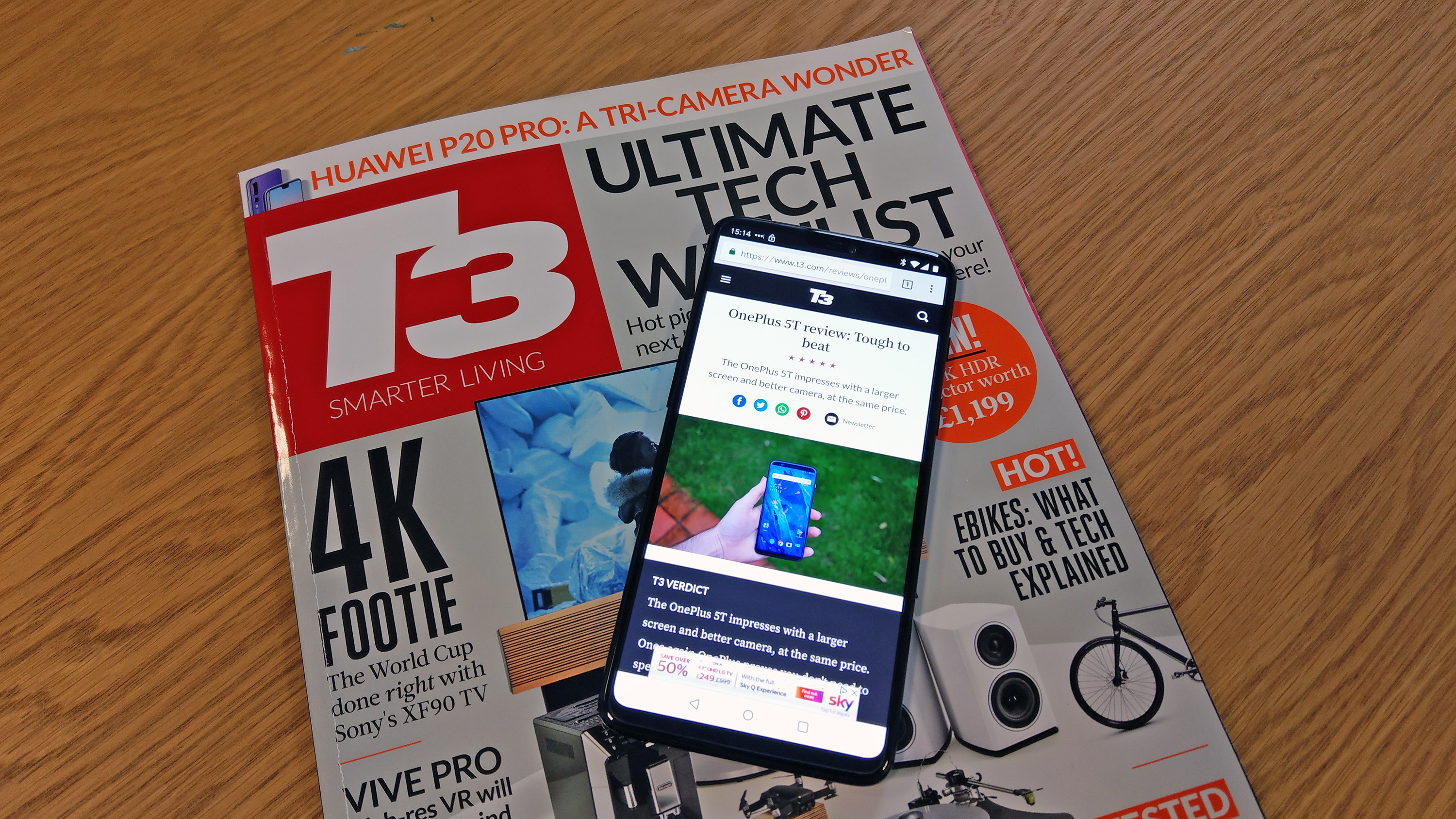
The OnePlus 6 comes equipped with 3,300 mAh battery and, straight away when I saw the capacity on paper, considering the size of the screen and powerful internal hardware, I thought this could be a less than ideal area for the phone.
Using it over the testing period though left me in two minds about its capabilities. You get a solid day and a half typical usage time with the OnePlus 6, which while not ideal, I definitely feel should be par for the course today for smartphones, and did not see me running for the charger too frequently.
However, I did notice that the battery got severely munched in heavy usage scenarios, such as when running Final Fantasy 15: Pocket Edition and Harry Potter: Hogwarts Mystery, and I do wonder if the battery has the legs to continue powering these demanding experiences on such a well-endowed, large form-factor device, while also maintaining a north of a day usage period, in a year or so.
What I definitely feel was a massive success though was the phone's Dash Charge technology, which can provide "a day's power in half an hour". My testing confirms that you can get roughly a 50 per cent charge in 30 minutes (providing you are at 0 per cent or close to it), and a full charge in around 80, which is very competitive and helps to mitigate my fears over future battery life.
While I don't consider it a super important, make-or-break feature, I feel it is important to note here that the OnePlus 6 does not support wireless charging. How you will feel about this omission will largely come down to you charging setup and habits.
Lastly, the OnePlus 6 comes running Android 8.1 Oreo out of the box, as well as OnePlus' latest iteration of its OxygenOS skin. And, simply put, this is a very good combination that in no way bogs down the OnePlus 6's user experience. OxygenOS is a light skin of vanilla Android and offers some neat gesture controls, too, which make navigating and using the phone fluid (I liked the three-finger screenshot gesture especially).
OnePlus 6 review: verdict
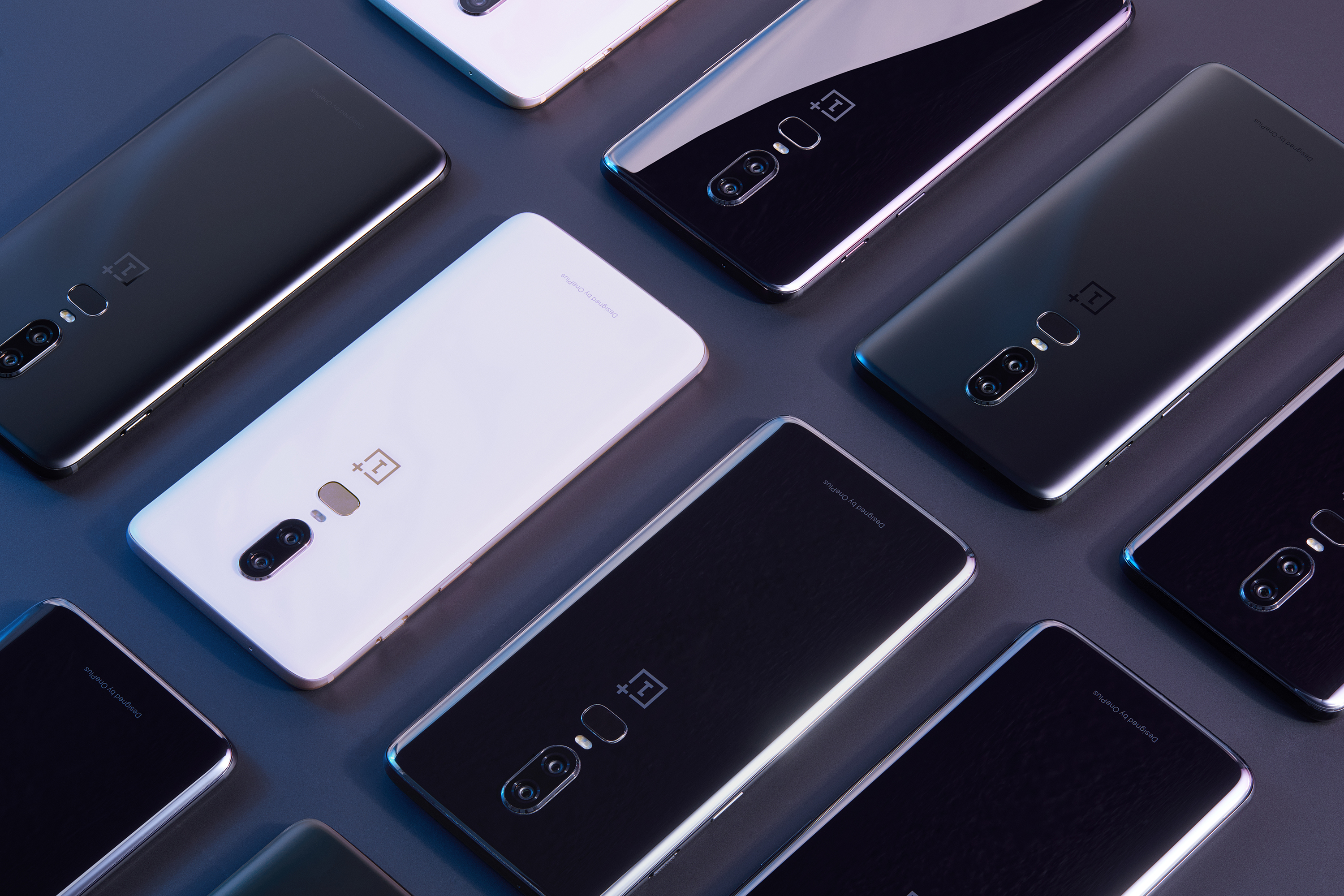
The phrase emblazoned on the side of the OnePlus 6 box is "The Speed You Need", and there's no doubting that this phone absolutely delivers on that promise. The OnePlus 6 is a blazingly fast Android phone, both in raw benchmarks and everyday usage scenarios, with my experience so far characterised by buttery smooth navigation, app-use, media-streaming, web-browsing, downloading, editing and more.
I feel the battery is suitable for the phone, too, despite having some reservations about its ability to maintain that over the medium-to-long term, and the OnePlus 6's notched, 19:9 screen is very nice as well, communicating a level of premium that the phone's sub-flagship price would not suggest it has.
If you've got the need for speed, then the OnePlus 6 definitely has "The Speed You Need".
The good but not great camera system, as well as lack of a few features and credentials like wireless charging and an IP67/68 waterproof rating, though, take a little sheen of the device, as too does the fact that it really doesn't do much in terms of innovation, either. After all, the OnePlus 6 is very much a top, flagship-level device and as such must be judged at those standards.
Overall, however, the OnePlus 6 is a drag racer of Android phone, delivering unparalleled speed and power - and at a price point that falls well short of that demanded by its rival's flagship phones.
If you've got the need for speed, then the OnePlus 6 definitely has "The Speed You Need".
For more information about the OnePlus 6 then visit OnePlus' official website.

Rob has been writing about computing, gaming, mobile, home entertainment technology, toys (specifically Lego and board games), smart home and more for over 15 years. As the editor of PC Gamer, and former Deputy Editor for T3.com, you can find Rob's work in magazines, bookazines and online, as well as on podcasts and videos, too. Outside of his work Rob is passionate about motorbikes, skiing/snowboarding and team sports, with football and cricket his two favourites.